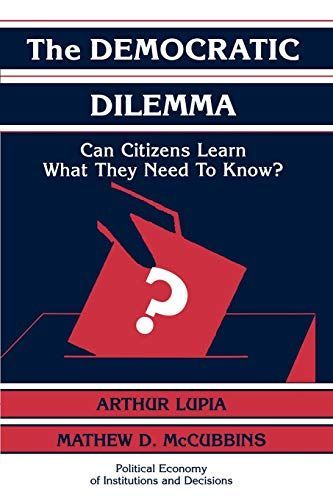
The Democratic Dilemma Can Citizens Learn What They Need to Know?
Voters cannot answer simple survey questions about politics. Legislators cannot recall the details of legislation. Jurors cannot comprehend legal arguments. Observations such as these are plentiful and several generations of pundits and scholars have used these observations to claim that voters, legislators, and jurors are incompetent. Are these claims correct? Do voters, jurors, and legislators who lack political information make bad decisions? In The Democratic Dilemma, Professors Arthur Lupia and Mathew McCubbins explain how citizens make decisions about complex issues. Combining insights from economics, political science, and the cognitive sciences, they seek to develop theories and experiments about learning and choice. They use these tools to identify the requirements for reasoned choice - the choice that a citizen would make if she possessed a certain (perhaps, greater) level of knowledge. The results clarify debates about voter, juror, and legislator competence and also reveal how the design of political institutions affects citizens' abilities to govern themselves effectively.